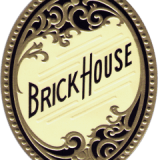Humidors are essential for cigar aficionados. They provide an optimal environment to store and protect cigars, keeping them in the best condition possible. But when it comes to finding the right material for constructing a humidor, there is more than meets the eye.
Contents:
Wood is one of the most popular materials used in cigar humidors. It can be found in a variety of woods such as mahogany, cedar, walnut or rosewood. Each wood has its own unique characteristics that contribute to creating a perfect atmosphere for storing cigars. Mahogany is often considered to be ideal due to its strong construction and beautiful grain patterns while cedar helps absorb excess moisture that could damage cigars over time. Walnut and rosewood also offer aesthetically pleasing options with added protection against humidity levels too high or low for safe storage of cigars.
Another common material used in humidors is glass, usually tempered or laminated glass which offers superior strength compared to ordinary glass varieties. Tempered glass provides greater resistance from breakage and cracking whereas laminated versions increase protection from ultraviolet rays that can fade or discolor cigars over time. Glass also allows you view your collection without opening the box so you can easily see what’s inside without having to open it up each time – perfect for people who like show off their collection.
Metal is another option when looking at materials suitable for use in cigar humidors; stainless steel being among the most popular choices due its durability and non-corrosive properties – perfect if you want something long lasting but still stylish enough to look great on display. Aluminum alloy is another metal choice commonly used due its lightweight properties making it easier to transport around with ease while brass adds a luxurious touch with its warm golden hue – not just useful but looks good too!
When selecting your preferred material it’s important consider how much space you have available as well as what type of climate conditions your area experiences throughout the year – both factors will influence which type would work best for you needs so make sure do some research beforehand before committing any purchases.
Exploring Your Options
When it comes to selecting the right materials for constructing a quality cigar humidor, there are several options available. First and foremost, you will need to consider what type of wood is best suited for your project. Hardwoods like mahogany, cherry or walnut are some of the most popular choices when it comes to crafting cigar humidors. These woods offer superior insulation which helps keep cigars at their ideal humidity levels over long periods of time. They can also provide an elegant aesthetic that looks great in any space.
Another important factor to consider is the kind of sealant used in the construction process. Generally speaking, a high-quality silicone-based adhesive should be used as this provides superior adhesion and moisture resistance compared to other types of sealants on the market. This ensures that no air escapes from inside your humidor, maintaining optimal humidity levels within its interior environment for extended periods of time.
When assembling your humidor you will want to make sure that all components are properly secured together with screws or bolts so that everything stays firmly in place even after repeated use over time. Quality hardware such as brass or stainless steel fasteners should be chosen for their durability and strength; they’ll help ensure your construction lasts through years of regular use without needing repairs or replacement parts anytime soon.
The Benefits of Quality Materials
When it comes to constructing a cigar humidor, finding the right materials is essential for ensuring optimal humidity and temperature levels. Quality materials are key to maintaining the ideal environment for storing cigars as well as keeping them safe from pests and other external elements.
Quality wood, such as Spanish cedar or Honduran mahogany, is an excellent choice when building a humidor. Not only does it provide superior protection against extreme temperatures, but it also helps maintain optimum humidity levels in the interior of the box. These woods have natural oils that help protect your cigars from becoming dry or brittle over time. They also emit a pleasant aroma that can enhance your smoking experience.
To further ensure quality construction of your humidor, you should consider investing in premium-grade hardware like brass hinges and locksets with plated finishes. These components will help keep out unwanted moisture while providing years of reliable performance without requiring any maintenance or replacement parts. High-quality adhesives should also be used during assembly to ensure proper sealing and prevent air leakage between pieces of wood and joints between components.
Don’t forget about the importance of selecting quality sealants such as silicone caulk or acrylic latex paint for sealing seams around door frames and lids to keep airtight integrity throughout its lifetime usage. Properly sealed seams will guarantee no loss of interior humidity which is critical for properly aging cigars inside the box over long periods of time.
Choosing the Right Wood
When constructing a cigar humidor, the type of wood used is an important factor in ensuring optimal humidity and preserving the flavor of cigars. With so many different woods to choose from, it can be hard to decide which one will best suit your needs.
To start, consider the level of grain that you want in your humidor. Woods like mahogany or cherry offer more subtle grain patterns than others such as oak or walnut; however, each offers its own unique look and feel. Also, some woods may require additional treatments such as staining or varnishing for protection against moisture damage over time.
In addition to the grain pattern and treatment needed, keep in mind how much weight you are comfortable with adding to your humidor. Harder woods such as maple are heavier than softer ones like cedar, but they tend to provide better insulation while maintaining their structural integrity over time. Ultimately, selecting the right wood depends on personal preference as well as practical considerations such as budget and overall design aesthetics desired for the finished product.
Humidity Regulation Solutions
Humidity regulation is essential when it comes to preserving the quality of cigars in a cigar humidor. Without the right levels, cigars can dry out and become brittle or even develop mold. Fortunately, there are several solutions available to help regulate humidity within a humidor and ensure that your cigars remain fresh and flavorful.
One option for regulating humidity in a humidor is to use an electric-powered device such as a digital hygrometer or humidistat. These devices measure the relative humidity (RH) inside the humidor, alerting you if it rises above or drops below acceptable levels. They may also feature fan-driven ventilation systems which circulate air throughout the interior of the box for increased accuracy and consistency in readings.
A second solution involves using natural products such as cedar wood planks or strips of Spanish cedar lining along with distilled water reservoirs filled with propylene glycol solution. This combination works by allowing moisture from the propylene glycol solution to be released into the air within the box while simultaneously absorbing any excess moisture from inside when needed. The porous nature of both materials allows them to naturally balance out RH fluctuations without requiring any power source at all.
Adding Extra Protection
Adding an extra layer of protection to a cigar humidor is important for maintaining the quality and integrity of its contents. This can be done by using sealing materials such as polyurethane or silicone caulk, which provide an airtight seal that helps keep out moisture and other damaging elements. Waxing or lacquering the interior surfaces of the humidor can also help protect against warping, cracking, and other damage from humidity fluctuations.
When it comes to choosing the right materials for constructing a humidor, there are several factors to consider including the type of wood used in construction as well as how well it is sealed. Woods like mahogany and Spanish cedar are popular choices because they offer good insulation properties while still providing a pleasing aesthetic appearance. When selecting these woods, make sure they are properly kiln-dried so that they won’t warp over time due to changes in temperature or humidity levels inside the humidor. To ensure maximum protection from moisture intrusion, use weatherstripping around all edges where two pieces of wood meet and make sure any seams between them have been caulked with either polyurethane or silicone caulk.
Investing in high-quality hardware will help maintain optimal conditions inside your humidor over time. Hinges should be rustproof stainless steel for long-term durability; knobs should be made from corrosion-resistant metals like brass; and locks should feature double-bolted mechanisms for added security against theft or tampering with your precious cigars.
Cigar Humidor Designs
When it comes to building a quality cigar humidor, the design is just as important as the materials used. Not only does the design need to be attractive and eye-catching, but it also needs to serve its purpose by keeping cigars in perfect condition. A traditional cigar humidor will typically feature an elegant wood box with a glass window or lid that allows you to see inside. However, there are many more designs available for those who want something more unique and creative.
For example, some people choose metal humidors which offer superior protection from humidity changes due to their airtight seal. These come in all sorts of shapes and sizes ranging from small portable containers for travel use up to large wall-mounted units for larger collections. Alternatively, if you’re looking for something truly special then custom made models can often be commissioned from experienced craftsmen who specialize in this type of work.
Don’t forget about aesthetics when choosing your ideal humidor design – this is what will really make your piece stand out and turn heads wherever you go. Whether it’s contemporary styling or classic lines that take your fancy, there are plenty of options available so you can find one that fits your taste perfectly.
Achieving Optimal Conditions
When crafting a quality cigar humidor, achieving optimal conditions is of utmost importance. Proper air circulation and the right levels of humidity and temperature must be met to ensure cigars are kept in perfect condition. To do this, careful consideration needs to be given to the materials used for construction.
High-grade Spanish cedar wood is often favored as it provides superior insulation from extreme temperatures and holds moisture well – two essential qualities for preserving the freshness of cigars over time. It also has an inviting aroma that compliments any humidor, further enhancing its appeal. On top of that, Spanish cedar has natural oils which serve as a repellent against tobacco beetles – another key factor when selecting your material.
For added protection against pests and other impurities, some opt for lining their humidors with aluminum or plastic sheeting on the inside walls before adding the cedar veneer finish; although some argue that this may hinder air flow within the box due to lack of breathability. In any case, making sure all seams are properly sealed is paramount so you can avoid potential issues down the road.
Finishing Touches
When it comes to constructing a quality cigar humidor, the finishing touches can be just as important as the initial materials. An experienced woodworker may choose to use exotic woods for both the interior and exterior of the box. The type of wood used is often determined by its ability to hold moisture, so an ideal choice would be something like Spanish cedar or Honduran mahogany that are known for their strength and humidity-retention capabilities. Other popular options include cherry, walnut, and oak – all of which are commonly used in fine furniture making.
In addition to selecting a suitable material for building your humidor, you’ll also need to consider what kind of hardware you’d like to use on your project. For example, if you plan on having a lockable lid then hinges and latches should be selected accordingly; while decorative drawer pulls could add an aesthetically pleasing touch if desired. When it comes time to seal up any cracks or seams between pieces of wood, glue is typically best suited for this task; however some experts recommend using silicone caulk instead due to its superior water resistance properties.
When it’s all said and done don’t forget about adding foam padding inside your humidor. This will not only help keep cigars from shifting around but also prevent them from being damaged over time due to temperature fluctuations or accidental drops. Padding materials such as wool felt are usually sufficient enough but there are more specialized options available depending on one’s needs and budget such as high-density foam inserts designed specifically for cigar storage purposes.











